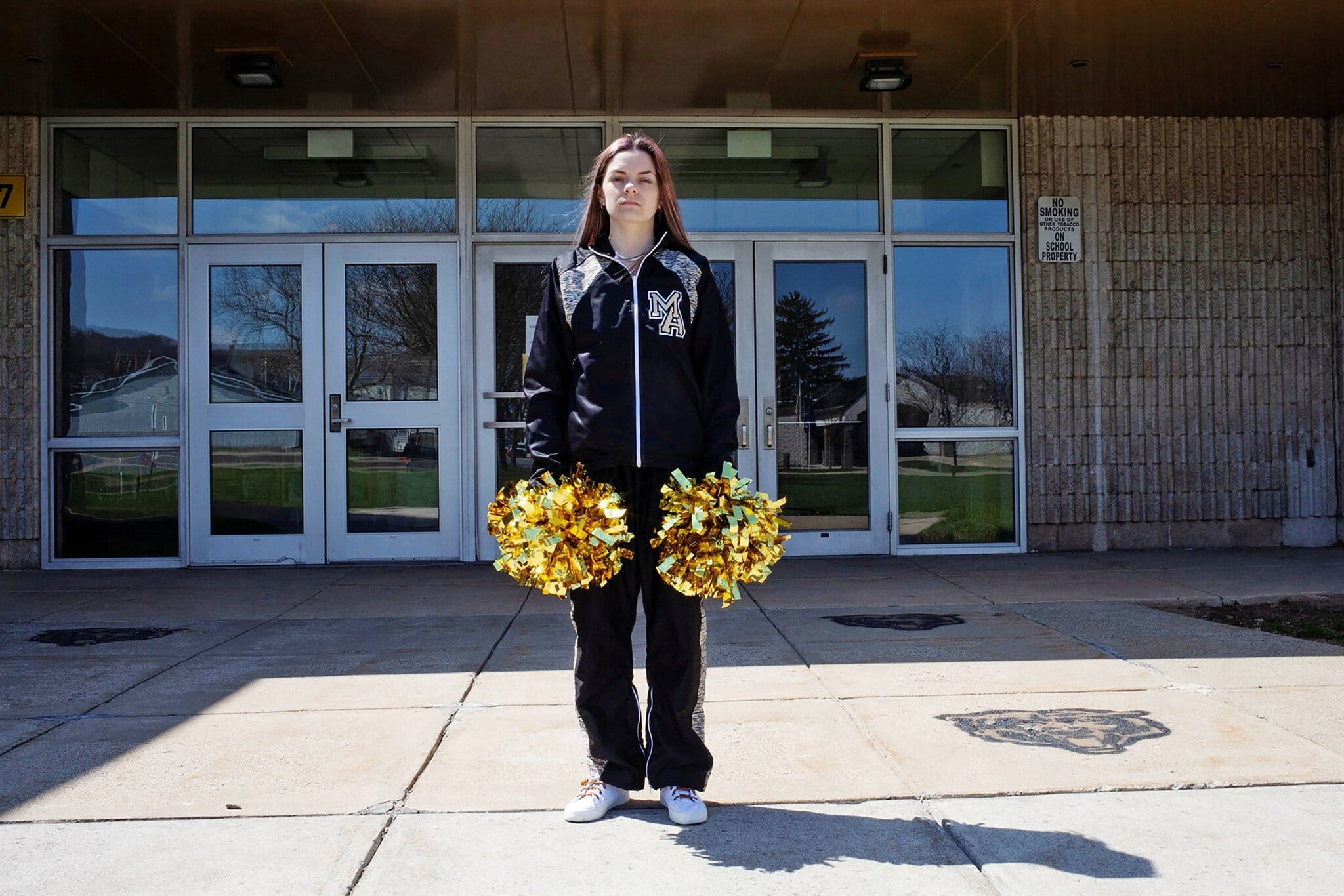Supreme Court Gives Win To Cheerleader’s F-Bombs in Free Speech Case

- Funny
- Offensive
Supreme F’ing Court Rules
June 24th, 2021 – The Supreme Court ruled in favor of a former high school cheerleader who was punished for posting a profane message on social media while off-campus, a victory for students’ First Amendment rights. The justices voted 8-1 with Justice Stephen G. Breyer writing for the majority.
“America’s public schools are the nurseries of democracy,” he wrote. “Our representative democracy only works if we protect the ‘marketplace of ideas.’ Schools have a strong interest in ensuring that future generations understand the workings in practice of the well-known aphorism, ‘I disapprove of what you say, but I will defend to the death your right to say it.'”
The case is the most impactful student speech one to reach the Supreme Court in 50 years and centered around Brandi Levy who, in 2017, posted a slew of F-bombs to her Snapchat account after not making the Varsity cheerleading team at her high school. The then-14-year-old shared the video from a local convenience store where she and a friend tossed out some middle fingers along with the uncensored caption:
“f**k school f**k softball f**k cheer f**k everything.”
Snapchat posts delete after 24 hours but, like everything on the internet, they can actually last forever. A fellow cheerleader took a screenshot of Levy’s four letter post and it made the rounds, finally landing in front of a cheerleading coach. The Mahanoy Area School District supported Levy’s high school’s decision to suspend her from participating in the Junior Varsity cheer team during her sophomore year.
When the school wouldn’t budge on their position, Levy and her parents sued the school district. A federal appeals court in Pennsylvania agreed with her and ruled that school officials have no authority to punish students for speech that is used outside the campus grounds.
The Supreme Court determined that the school district violated Levy’s First Amendment rights and acknowledged that her post was made on a personal device, off campus, shared with her personal followers, and didn’t target anyone specifically nor call out the school by name.
Breyer added that Levy’s post “is the kind of pure speech to which, were she an adult, the First Amendment would provide strong protection.”
The Supreme Court didn’t, however, give carte blanche to students who want to sound off when they aren’t on campus. Breyer stated that schools could still take disciplinary action against students whose speech is considered “serious or severe bullying or harassment targeting particular individuals; threats aimed at teachers or other students.”
“We do not now set forth a broad, highly general First Amendment rule stating just what counts as ‘off campus’ speech and whether or how ordinary First Amendment standards must give way,” he wrote. Schools, he said, can address “substantial disruption of learning-related activities or the protection of those who make up a school community.”
Despite the window for future free speech battles, David Cole, the legal director of the American Civil Liberties Union, which represented Levy, considered the win a substantial one.
“It’s a huge victory for students’ speech rights,” he said. “It means that when students leave school every day, they don’t have to carry the schoolhouse on their backs.”
The ACLU also celebrated the victory online with Twitter threads and the creation of a new shirt that students can wear…off campus.
BREAKING: The Supreme Court upheld 50 million young people’s free speech rights today in an important decision that reaffirmed that students outside school retain the right to express themselves freely.
— ACLU (@ACLU) June 23, 2021
Say it with us:
— ACLU (@ACLU) June 23, 2021
Fuck school.
Fuck softball.
Fuck cheer.
Fuck everything.
We know our First Amendment rights and we will use them. Get the new Fuck Everything tee today.https://t.co/yd7ojHzXwh pic.twitter.com/4fACzyXSRb
